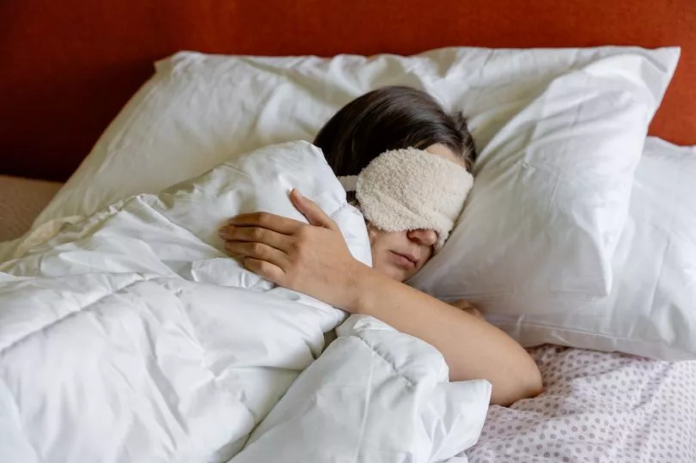 Image: Getty provided by Sol Physio
Image: Getty provided by Sol PhysioThis physio-approved sleep hack will fix your morning aches
- Expert reveals how a 30-second stretch can transform your health
- The 4-7-8 breathing method that could help you sleep
With the new year in full swing and many of us embarking on resolutions to improve our health and wellbeing. Improving sleep quality could be the key to a better overall wellbeing. Research shows that between 50% and 90% of people with chronic joint pain struggle with sleep, creating a vicious cycle of discomfort, fatigue, and health issues.
To help the nation enjoy a better night’s sleep and wake up pain-free, expert physiotherapist Amardeep Manku at Sol Physio shares five simple tips to improve sleep quality, including a quick routine to complete before sleep.
-
Adjust your sleep position
The way you sleep plays a big role in pain and recovery. For back sleepers, place a pillow under your knees to help relieve pressure on your low back and hips. Side sleepers should use a pillow between their knees to keep your hips in a neutral position helping to reduce pressure. If you are feeling neck or shoulder pain, it is best to use an orthopaedic pillow which provides support to both the neck and head.
-
Stretch before you sleep
Gentle bedtime stretches can ease joint stiffness, relieve muscle tension, improve circulation, and calm your nervous system. Remember to breathe deeply and stretch within your comfort zone. Some examples of stretches to perform before bed are:
Legs up the wall: Lie on your back with your legs extended up a wall. You can have a slight bend in your knees if this is more comfortable. Close your eyes and take some deep breaths, relaxing your body deeper into the stretch with each exhale for 3-5 minutes.
Lateral neck flexion – Sit or stand upright, gently tilt your head toward one shoulder while keeping the shoulders relaxed. Remember to keep breathing throughout the stretch and do not force any movement. Hold the position for 15-30 seconds, then switch sides. Repeat this stretch 2-3 times on both sides.
-
Deep Breathing
Deep breathing is one of the body’s best self-healing tools, helping to lower heart rate, reduce stress, and promote relaxation.
A good deep breathing technique to practice before sleep is triangle breathing using the 4-7-8 method:
-
Sitting comfortably, breathe in through your nose for a count of 4, holding your breath for a count of 7, and breathing out through your mouth with perched lips for a count of 8.
-
Repeat 3-5 times with 30-45 second breaks.
-
Create the right sleep environment
Your bedroom should be a sanctuary for rest. Keep it dark, quiet, and cool, ideally around 16-18°C. Invest in blackout curtains, a comfortable mattress, and breathable bedding to enhance sleep quality.
Turn off electronic devices in your bedroom and limit screen time before bed. Ideally, avoid screens for at least two hours before sleeping.
-
Incorporate regular exercise
Physical activity improves sleep quality and reduces joint pain. Aim for at least 150 minutes of moderate-intensity exercise per week. However, avoid vigorous workouts close to bedtime, as they increase your heart rate and can interfere with your ability to fall asleep easily.
The advice provided above is generalised and may not be effective for everyone. Although the advice is very unlikely to cause any adverse effects, if your symptoms are aggravated by the stretches or you have any pre-existing conditions/injuries, you may require a personalised treatment plan. If so, it is advised that you book an initial appointment at
www.solphysio.co.uk, in which a full and thorough assessment will be conducted and you will be advised accordingly.
Help keep news FREE for our readers
Supporting your local community newspaper/online news outlet is crucial now more than ever. If you believe in independent journalism, then consider making a valuable contribution by making a one-time or monthly donation. We operate in rural areas where providing unbiased news can be challenging. Read More About Supporting The West Wales Chronicle






















